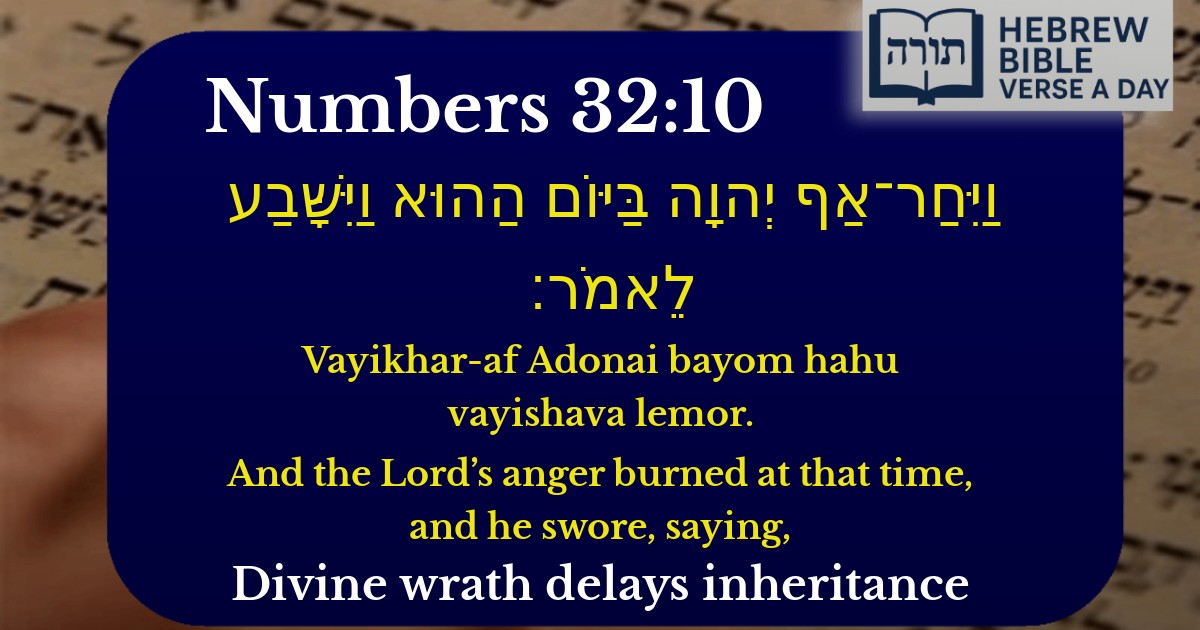Join Our Newsletter To Be Informed When New Videos Are Posted
Join the thousands of fellow Studends who rely on our videos to learn how to read the bible in Hebrew for free!
Hebrew Text
וַיִּחַר־אַף יְהוָה בַּיּוֹם הַהוּא וַיִּשָּׁבַע לֵאמֹר׃
English Translation
And the Lord’s anger burned at that time, and he swore, saying,
Transliteration
Vayikhar-af Adonai bayom hahu vayishava lemor.
Hebrew Leining Text
וַיִּֽחַר־אַ֥ף יְהֹוָ֖ה בַּיּ֣וֹם הַה֑וּא וַיִּשָּׁבַ֖ע לֵאמֹֽר׃
Parasha Commentary
📚 Talmud Citations
This verse is not quoted in the Talmud.


Anger and Divine Oath in the Verse
The phrase "וַיִּחַר־אַף יְהוָה" ("And the Lord’s anger burned") reflects a moment of intense divine displeasure. Rashi (Devarim 1:34) explains that this anger was directed at the Israelites due to their lack of faith after the incident of the spies (Meraglim), when they rejected the Land of Israel despite Hashem’s promises. The term "וַיִּשָּׁבַע" ("and He swore") signifies a binding divine decree, emphasizing the severity of the consequence—namely, that generation would not enter the Land.
The Nature of Divine Anger
According to Rambam (Hilchot Yesodei HaTorah 1:12), divine "anger" is an anthropomorphism to help humans grasp Hashem’s response to wrongdoing, though His essence transcends human emotions. The Midrash (Bamidbar Rabbah 16:20) elaborates that divine anger is measured and purposeful, serving as a corrective measure rather than uncontrolled wrath.
The Oath and Its Implications
The oath ("וַיִּשָּׁבַע") is a recurring theme in Tanach when Hashem establishes irreversible judgments. The Talmud (Shevuot 39a) teaches that divine oaths are immutable, underscoring the gravity of the Israelites’ sin. The Sforno (Devarim 1:34) notes that this oath was not merely punitive but also pedagogical—to teach future generations the consequences of distrusting Hashem’s promises.
Key Lessons from the Verse